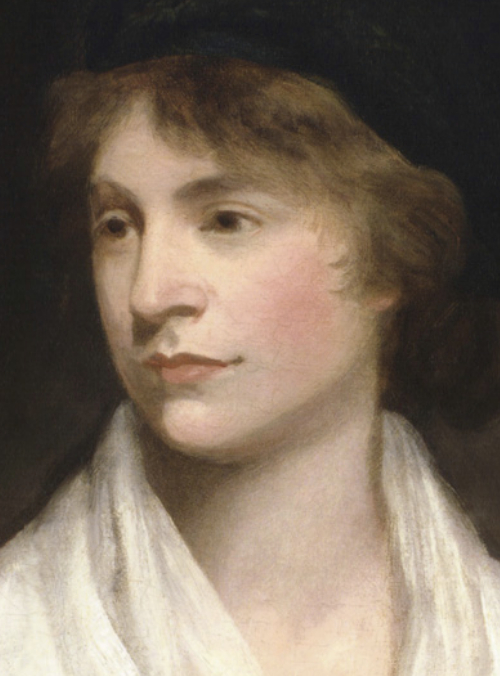On this date in 1759, feminist author Mary Wollstonecraft was born in London, the second of seven children. An industrious young woman, she worked as a governess and then opened her own school. Her first book, Thoughts on the Education of Daughters, was published in 1786, followed by a novel, a children’s book, a translation and The Female Reader (1789).
When Edmund Burke read her review of a sermon by dissenting minister Richard Price, he wrote a famous attack on the American and French revolutions. Wollstonecraft rebutted his polemic in her 1790 pamphlet “A Vindication of the Rights of Men, in a Letter to the Right Honourable Edmund Burke; Occasioned by His Reflections on the Revolution in France,” attacking the aristocracy and advocating for republicanism.
Her seminal A Vindication of the Rights of Woman was published in 1792. The first influential book calling for the equality of the sexes, it urged that women be educated and treated as “rational creatures.” Wollstonecraft championed dress reform, breast-feeding, early education and a national system of co-educational primary schools. She warned of those who prey “on the credulity of women.”
She gave birth to a daughter after a brief liaison with Gilbert Imlay, an American businessman, then married atheist William Godwin in March 1797. After an uneventful pregnancy, 38-year-old Mary gave birth on Aug. 30, 1797 to a second daughter, Mary, then died of an infection 10 days later. Wollstonecraft was an ardent rationalist and deist who adopted an agnostic point of view toward the end of her life. Her daughter Mary ran off as a teenager with poet Percy Bysshe Shelley and wrote Frankenstein at age 19. (D. 1797)


